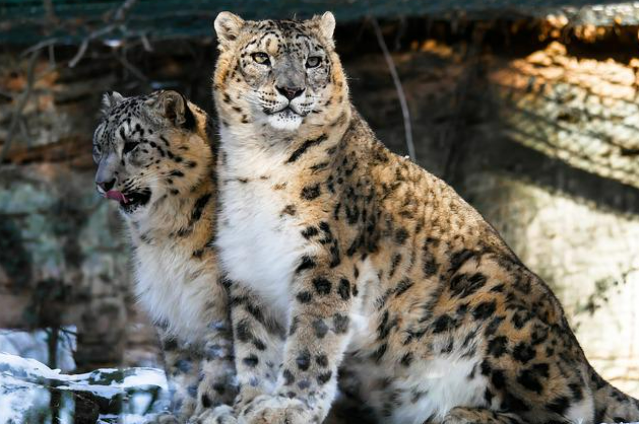
Along with humans, there are many kinds of animals on earth. In fact, science says that animals lived on earth before man. Not only does life come from life. A species can only be derived from the same species. Dogs only give birth to puppies. Cats give birth to kittens. It is not a simple matter to prove that domesticated dogs are the oldest species in the world, dating back to 329 BC, and domesticated cats are 9,500 years old...Scientists estimate that the earth is 4.6 billion (4,600,000,000) years old. Scientists now believe that the origin of life on earth took place 350 million years ago. The oldest fossils are 60 million years old, but research has concluded that the age of the Earth is more than seven times the age of the oldest fossils. There are also fossils of giant organisms that lived billions of years ago. They are reptiles (animals that crawl on the ground). We know crocodiles, lizards, etc. belong to this category. But even bigger, the giant reptiles that lived in the most ancient ages are the dinosaurs we know so much about today.
Endangered species

However, many animal species that were born after the earth appeared are gradually disappearing. Many species are now extinct. Even in the modern era, many species of animals that we know are disappearing from the earth. The main objective of 'World Animal Welfare Day' is to protect animal species from extinction. Animal Welfare Day is celebrated on 25th November every year by various animal welfare organizations to celebrate the birth anniversary of Sadhu TL Vaswani, who made significant efforts for animal welfare.
Man is destroying the habitats of animals.
We are actually destroying the habitats of animals. We are cutting forests indiscriminately and destroying their habitats and fresh water sources. That is why wild animals are coming into villages and towns. They are also attacking humans for food. One of the objectives of this Animal Welfare Day is to change this situation. It is important to provide natural habitats for animals, protect animal species and protect their welfare.
As the forest areas are being encroached upon, the animals that roam freely have lost their protection. For centuries, it is becoming difficult for the animal network to survive the attacks and hunts of humans and establish settlements in the forests. Humans kill animals in many ways for meat and entertainment. They use animals for their occupations and needs and torture them. It has become a common practice to torture animals like cows, goats, buffaloes etc by injecting them with chemicals to produce more milk.
The Wildlife Protection Act
is actually a law made in Parliament in this regard. According to this law, if the animals are caught intentionally or negligently or cause trouble, they will be punished. This Act has been in force since December 26, 1960. The Government of India enacted the Wildlife Protection Act in 1972. Illegal sale of wildlife, neglect of stray animals, torture and inhumane treatment of wild animals are all punishable under Indian laws.
Section 11 (1) to (o) of the Prevention of Cruelty to Animals Act, enacted by the Parliament of India, punishes by law those responsible for the hunting, capture or capture of animals, mutilation or killing of any animal and other acts of cruelty. A fine of Rs 100 or imprisonment of three months or both shall be imposed on those who commit unnecessary violence in animal transport, who stuff animals in vehicles as if crowded, those who tie the legs of animals and carry them on vehicles. Scaring and injuring animals is illegal under Section 428 and 429 of the Indian Penal Code. To terrorize animals or their keepers is an offense under Section 503 of the Indian Penal Code, 1860 knowingly or wilfully. Such persons can be detained without any warrant.
Compassion towards animals is the basic responsibility.
Article 51A of the Indian Constitution defines the basic responsibilities of citizens to show pity and compassion towards animals. Article 21 of the Indian Constitution affirms the right to personal liberty and life. This Act enshrines the right of Indian citizens to keep animals. On the day of Animal Welfare Day, animal welfare campaigns are organized along with organizing animal protection camps and collecting funds for animal protection.
It is everyone's responsibility to conserve and nurture animal life and protect animal rights. It is everyone's responsibility to protect and enhance animal wealth which is indispensable for human survival and to give due respect to animals. Treating animals more humanely, and conveying this spirit to future generations is necessary, and inevitable…
(November 25 is National Animal Welfare Day)
